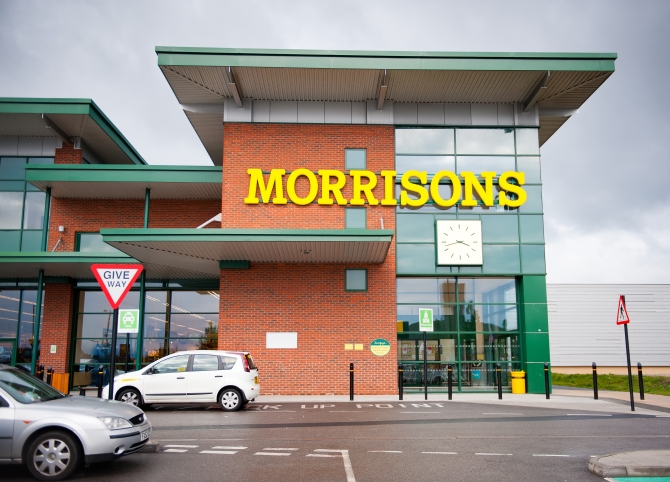Morrisons has been one of the worst casualties of the supermarket price war, with its late entry into the world of online retailing and emphasis on providing fresh produce rather than lower prices both turning consumers away at a rapid rate. However, despite yet another poor sales result, the brand claims it is “making progress” with its turnaround plan.

In the 13 weeks to the 2nd of November, like for like sales fell by 6.3 per cent when compared to last year, while total sales excluding fuel dropped by 3.6 per cent. Although this is a step up from the like for like sales plunge of 7.4 per cent during the first half, analysts have still described the most recent set of results as “dismal” and worse than expected.
Chief executive Dalton Philips claims that initiatives, such as the new loyalty card known as Match & More, are proving “extremely popular” with customers as Morrisons is now attempting to battle discounters including Aldi and Lidl rather than focusing on their traditional rivals such as Tesco and Sainsbury’s.
Cardholders are able to build up points which can be converted into vouchers for use in store, whilst the “match” aspect attempts to offer the same prices showcased in Aldi and Lidl – a step further than the scheme offered by rivals which only match prices offered by Big Four supermarkets.
Mr Philips said; “Morrisons is meeting the challenges created by a period of intense industry competition and structural change with quick and decisive action.
“I am encouraged by the further progress we have made, especially on a number of key operational measures, cash flow and costs.”
Following the trading update, Morrisons confirmed that it has narrowed its annual profits guidance from £325 million-£375 million to £335 million-£365 million, causing shares to rise by 5 per cent. However, it also committed itself to a £1 billion programme of spending into cutting prices and launching further customer initiatives over the next three years, which may well negatively impact operational costs in future if these prove less than successful.
Another area in which Morrisons claimed to have improved was the average number of items bought by customers, which fell by 2.4 per cent compared to last year’s drop of 6.9 per cent. However, Bernstein analyst Bruno Monteyne accused Morrisons of omitting performance indicators which would give a more rounded view of the third quarterly performance.
He said; “Management continued to point out the improving trend in terms of items per basket, however, this measure does not highlight how well the initiatives are doing.
“It is too affected by losing the promiscuous shoppers and only retaining the loyal single weekly shop families.
“At the interims, Morrisons gave other more useful KPIs (Key Performance Indicators) such as traffic and sales per customer, which are now missing.”